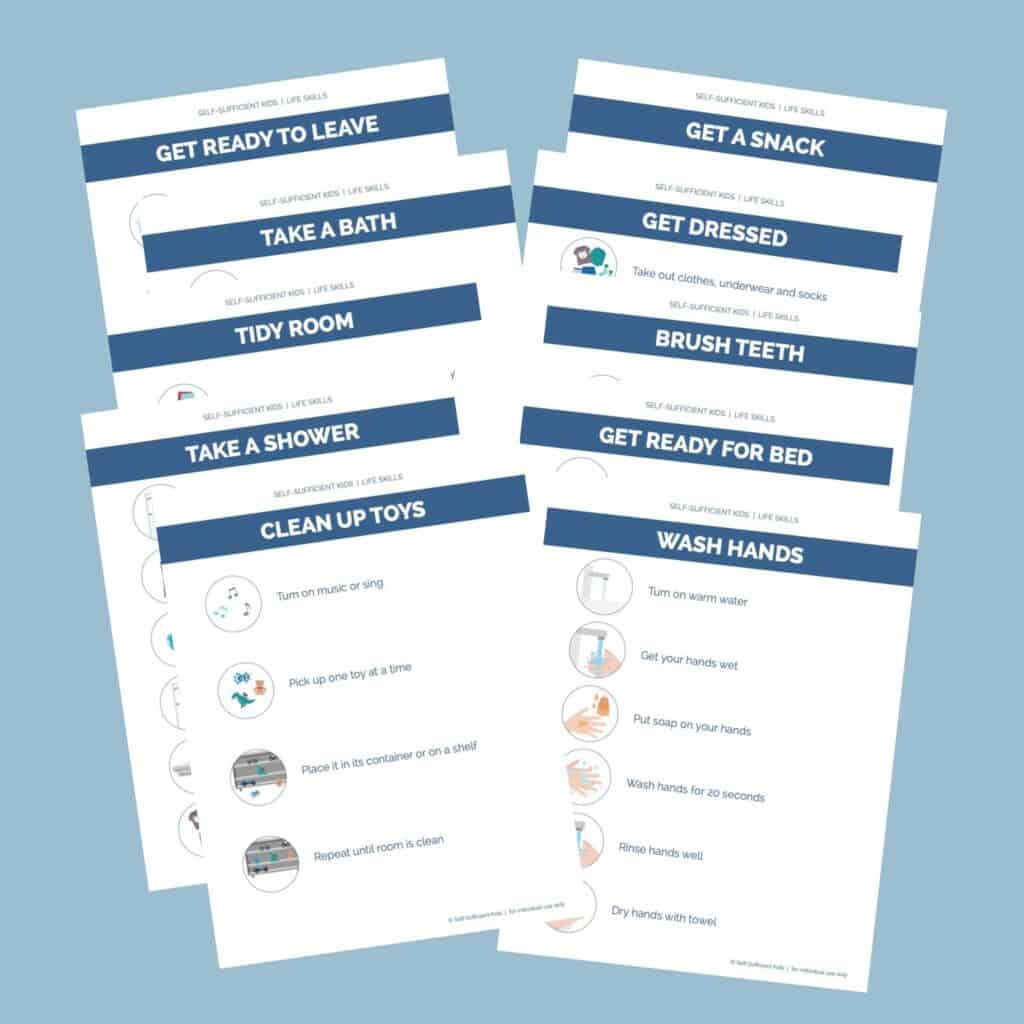Why Your Child’s Most Annoying Habit is Their Best Chance at Success
There are few parenting experiences more aggravating than kids repeatedly asking “why?”. Here’s the why behind the whys…and the best way to respond to kids asking why all day long.

(This post contains affiliate links. If you click on a link and purchase the item, I will receive a commission at no extra cost to you.)
When I pressed my feet to the floor that morning, I didn’t know that in just a few hours I’d begin a whole new phase in my life. A phase I had only heard of in hushed exasperated tones from fellow parents.
My daughter awoke in a pleasant and happy mood. We went downstairs for breakfast complete with special-made Mickey Mouse pancakes. The day was unfolding just like hundreds before it, with easy conversation, giggles and promises of a fun-filled day together.
As I was washing the dishes and cleaning up the remnants of mouse-eared pancakes, my joyful 3-year old dropped a bomb, “But Mom, WHY?” I can still hear it echoing in my ears. That was all it took, and it was then that I knew the “why” stage had begun.
What ensued in the following hours was nothing short of a torrential downpour of the same sequence: question, answer, why?, answer, WHY?, answer, WHY???
Honestly, I was not ready.
I knew that I was in for it because my own mother had regaled stories of how I was the most inquisitive child. Citing example after example of my never-ending onslaught of whys during my early childhood. But truthfully, I thought I had another year or two before I would face what karma had in store for me.
Why kids ask why
“Why do we have to have meatloaf for dinner?” “Why can’t I ride my bike without a helmet like Brendan?” “Why do airplanes fly?” “Why?…Why?…WHY?….WHY?”
Sometimes it feels as if the questions never end!
But have you ever stopped to think, why your child is asking why?
The “why stage” can be irritating and has been known to leave more than one exasperated parent in its wake. But what this stage signifies is a critical point in your child’s development, and a brilliant opportunity to promote self-reliance in your child.
To be able to look at this stage with fresh eyes and approach it with a patient open mind (rather than a very frustrated one), can aid our understanding of why kids ask why in the first place.
As parents, we know that young children are naturally curious and begin striving for independence at an early age.
A study done by the University of Michigan found that around age three, children begin to take an active role in learning more about their environment. One way this manifests itself is through asking questions. By doing this, children are able to practice critical thinking skills and take control of their learning.

Previous studies suggested that young children were only aware of temporal relationships or recognizing that there was specific timing between an action and an outcome and that they couldn’t understand causation until they reached seven to eight years of age.
But more recent studies, like the one mentioned above, have revealed that children as young as 3 years old are capable of understanding causation. This means that when children ask questions they are capable of actually understanding and learning how things work and why they happen.
This is vitally important information because these are the earliest opportunities we as parents have to begin teaching our children about the world.
But it definitely isn’t easy.
A 2012 report by online retailer Littlewoods surveyed 1000 mothers and found that children ages two to ten asked their mothers an average of 228 questions per day on any given day at home.
Whoa!
That’s A LOT of questions and considering that number is per child per day it’s easy to see how the kids asking why stage can quickly aggravate even the most experienced parent.
When faced with that daunting number, there is one very important thing to remember.
Children ask questions of the people that they love and trust. This exchange of inquiries and answers serves to grow and strengthen our bonds with our little ones while supporting their hunger for knowledge. And, children who are loved, feel secure, and are knowledgeable are far more capable of being self-sufficient.
Help guide your young child through everyday tasks with these Simple Directions for Young Children Cards. Each card serves as a reminder of how to carry out a task and allows children to eventually take on tasks independently. Click here to learn more.
What does “why” really mean to children?
As adults, the word “why” has a very specific definition, but to young children, it often encompasses many meanings. As clinical psychologist Sally-Anne McCormack explains, “why” doesn’t always mean why, often it is the only word a child knows to express an inquiry or ask a question.”
This can make our job as parents more difficult because we need to discern our child’s real meaning. James Brush, Ph.D., a child psychologist in Cincinnati explains, young children who are just developing conversational and social skills will sometimes engage in asking questions as a way to seek attention or empathy from a loved one.
While sometimes your child may be seeking a few extra snuggles, studies show that children are most frequently seeking an explanation to their question.
The University of Michigan study revealed children are 2 times more likely to re-ask their question when they receive a non-explanation. For example, if your child asks, “Why do dogs wag their tails?” and you respond, “I like dogs” he is twice as likely to re-ask his question than if you answer, “Dogs wag their tails because they’re happy or excited.” However, children are four times more likely to ask a follow-up question after an explanation.
So, the bad news is that answering “because I said so” doesn’t really work.
The question for parents now becomes, do you want to listen to your child asking the same question over and over because you haven’t provided an answer?
Or, do you want to seize the opportunity for learning and engage with your child by providing an adequate explanation and further your conversation?
How to answer after your child asks “why?”
Let’s get real for a minute, if a single child asks an average of 228 questions every day is it really possible to actively listen and answer each individual question?
Honestly? No.
McCormack reminds us that realistically it is impractical to answer every question, and it’s important to teach your children that your needs as a parent are also important.
Because honestly, two minutes of peace and quiet to go to the bathroom is not too much to ask.
However, it’s important to filter through the onslaught of questions and determine when a question is really important to your child, or when they simply need a little empathy or reassurance.
Maggie Dent, an author, educator, and parenting/resilience specialist explains that children who are constantly discouraged will withdraw to protect themselves emotionally Instead, try focusing your efforts on actively listening and communicating as often as possible and especially when it’s important to your child.
Whenever possible, encourage your child to ask questions because this fosters their natural curiosity and independence.
When answering questions and conversing with your child, be an active participant. McCormack suggests getting on their level or making eye contact (if possible), showing genuine interest with tone of voice and non-verbal cues, and ultimately asking them questions to practice problem-solving and critical-thinking skills.
Engaging with our children in this way helps to strengthen our parent-child bond and encourage independence.

How to handle kids’ uncomfortable questions
But then there are those moments when we, as parents, get blindsided by uncomfortable questions. How you react during these moments when it is especially important to establish open lines of communication?
Alan Kazdin, Ph.D., professor of psychology and child psychiatry at Yale University explains, you need to keep the conversation age-appropriate and honest. When relevant, include your family beliefs and values. This is particularly useful when tackling tough subjects with older children.
Michele Borba, Ed.D., educational psychologist and author of The Big Book of Parenting Solutions adds that you gain credibility by being honest about your past failures and what you learned. This lets children know you’re human too and it’s not the end of the world if you make a mistake.
Engaging in open communication with your children from a young age, sets the expectation that your kids can talk to you about difficult subjects. By answering your child’s questions in an honest and factual way, you build friendship, keep an open line of communication, and build trust, while your child gains knowledge and an understanding of their environment.
How does the “why” stage help kids as they grow?
A study from University College London, found that people who perceived their parents as less psychologically controlling grew up to have greater well-being and life satisfaction. In other words, being a warm and responsive parent by engaging your child in an honest way encourages their learning and awareness, and promotes social and emotional development.
When a child asks a question, it is an opportunity to teach critical thinking skills by delving deeper and asking follow-up questions to encourage them to understand process, causation and even make observations about their environment.
Self-sufficient children are independent because they’ve learned enough about their environment to be capable of doing things on their own and are confident enough to ask the right questions of the right people when they do need help.
The “why stage” is a wonderful opportunity to encourage life-long learning in your child, with the added benefit of strengthening your relationship and promoting healthy independence.
Being patient when my daughter asked for the fifteenth time why I put milk in my cereal was exhausting. Believe me, I was not ready for this at 9:00 AM on Tuesday.
But instead of blowing my top, I just laughed.
I have accepted my latest parenting challenge, knowing that this phase is an important one (and ultimately one I will miss) in raising a self-reliant child.
See related:
What Kids REALLY Need to be Confident, Independent, and Self-Reliant
How to Raise Internally Motivated Kids
The Secret to Raising Strong, Resilient Kids

Ashley is a wife and mom of one girl and a pup named Stella. She is also the founder of and e-designer for Marie and Maggs Interiors. When she’s not working, she loves going on outdoor adventures with her family and sipping on hot peppermint mochas.
What to do next…
1. Subscribe to Self-Sufficient Kids’ email list.
Like what you read here and want to learn more? Every Thursday I’ll send you one parenting tip about raising self-sufficient kids and creating the peaceful relationship you yearn to have with your child. Click here to sign up.
2. Take one of my quizzes!
Find out if you’re raising a self-sufficient kid (click here) or if you’re doing too much for your kids (click here). At the end of each quiz, you’ll be asked to provide your email address to see the results.
3. Get your kids started on chores.
Learn how to get your child started on chores (& keep them motivated + avoid power struggles) by enrolling in my Get Your Kids Successfully Started on Chores course. Click here to learn more and sign up.



